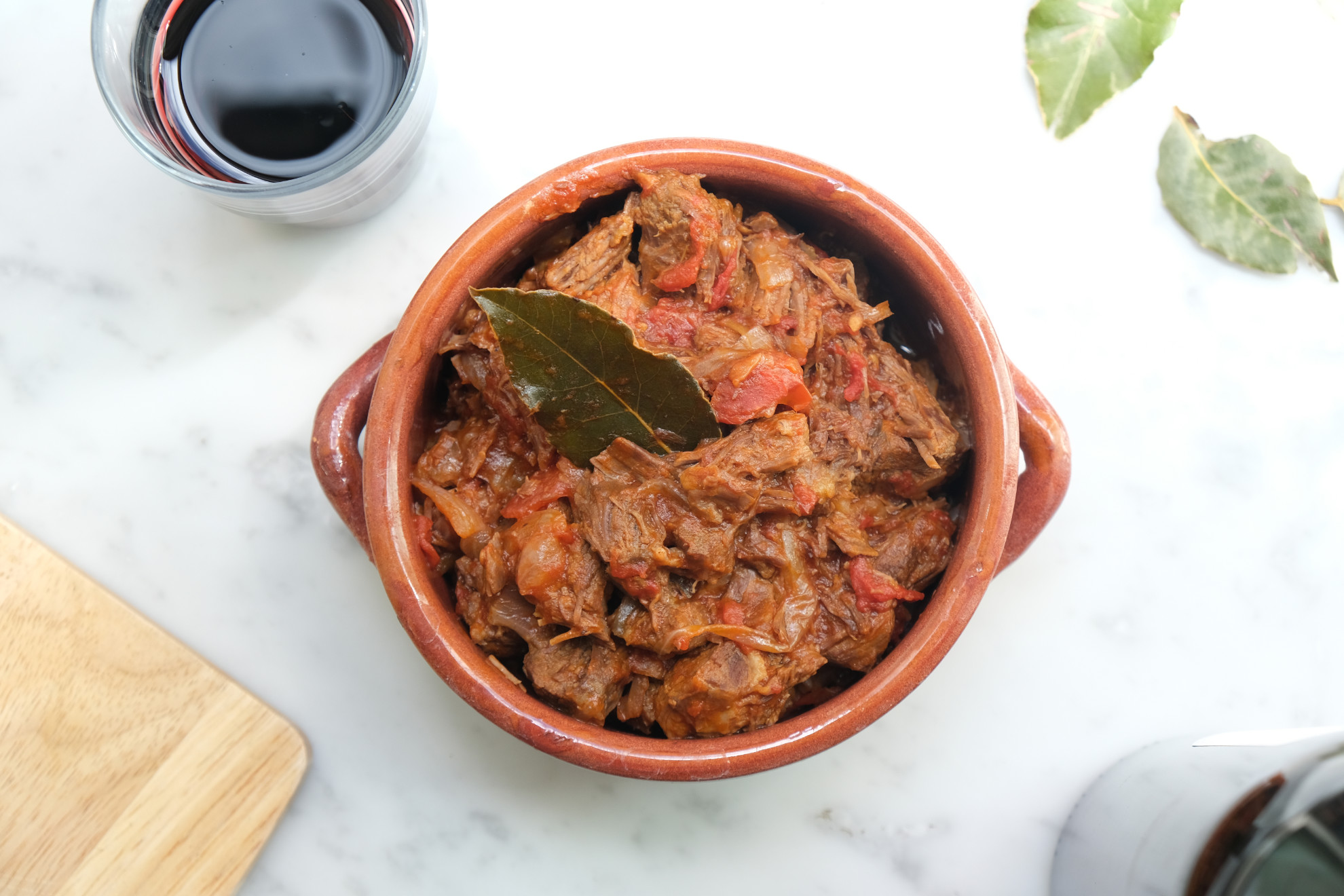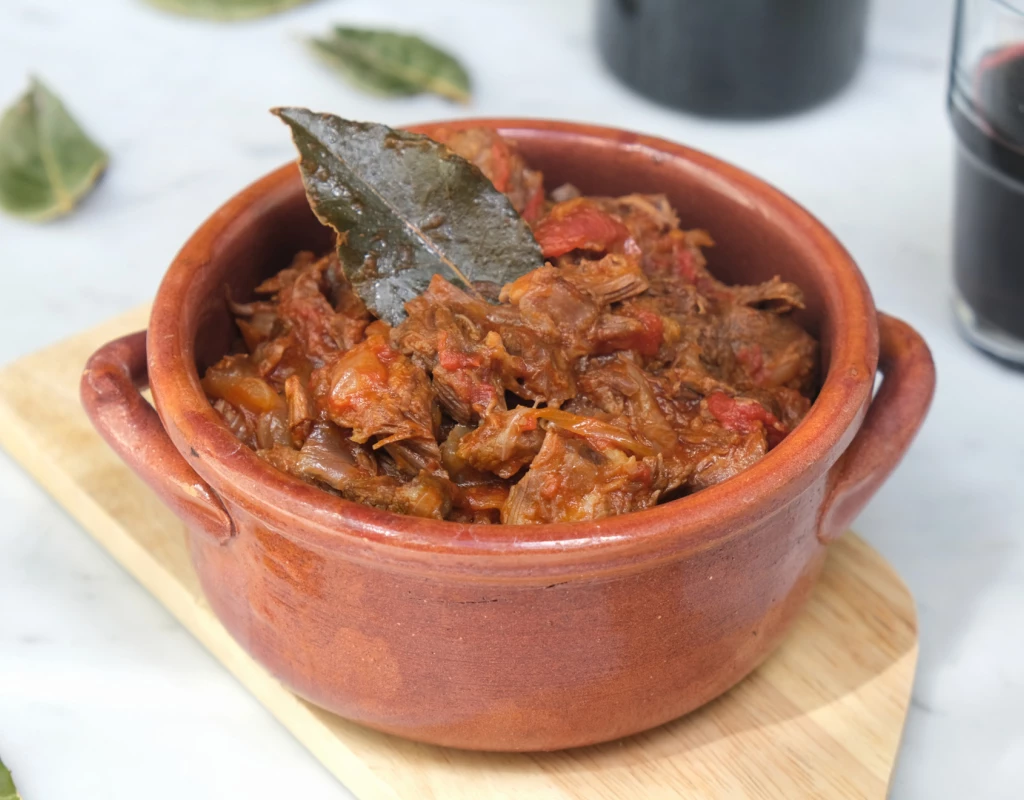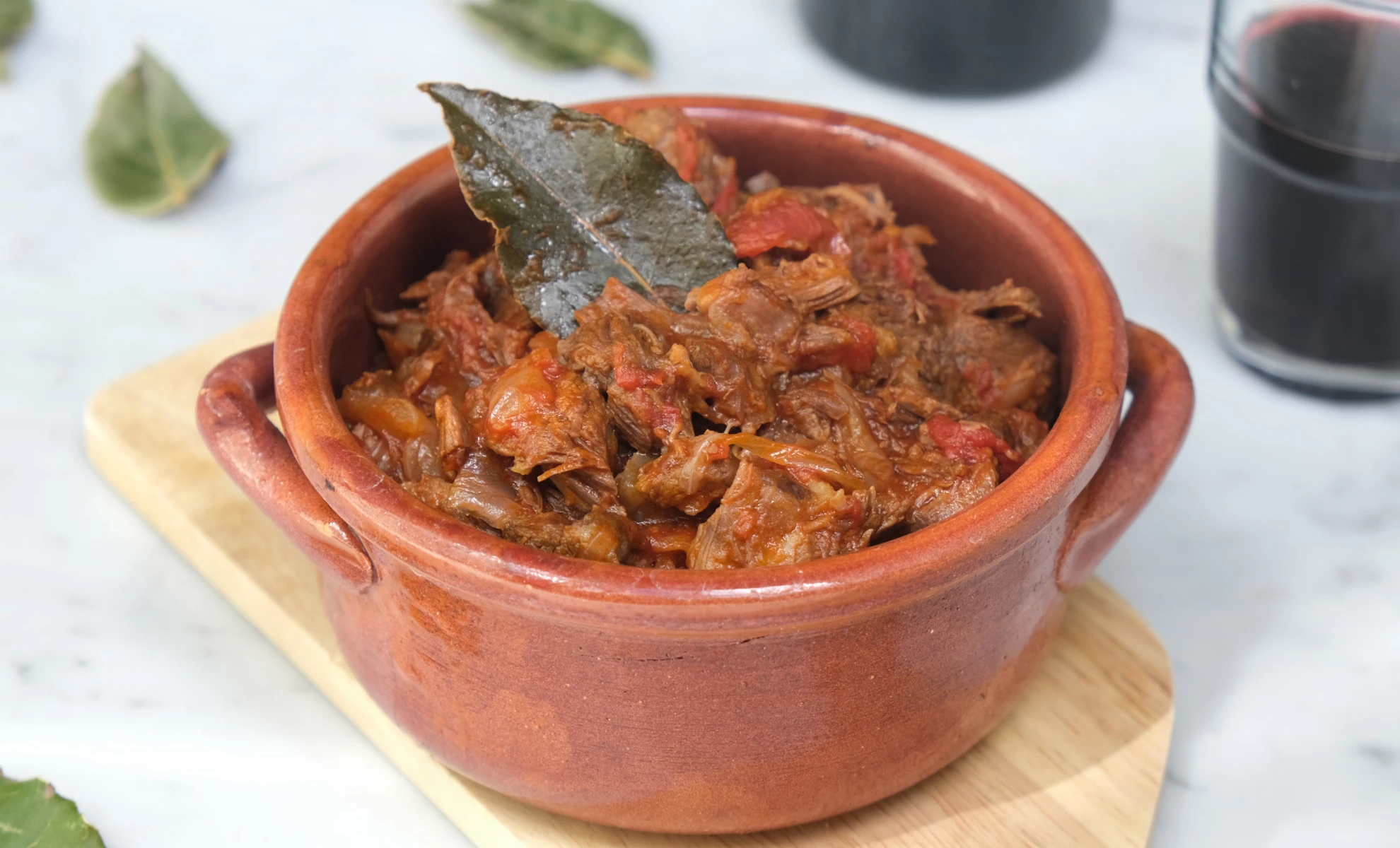«Sor Maè, in Rome there are 5,830 taverns. You have a wide choice». This quote is taken from “We All Loved Each Other So Much” (“C’eravamo tanto amati”) by Ettore Scola, one of the greatest masterpieces of Italian cinema.
It is the answer the waiter gave to a customer who complained that there were many onions and tomatoes and little meat on his dish.
On the customer's dish was the so-called “picchiapò”. Beef for the broth, then stewed with onions and tomato. The classic recipe of recycling of Italian popular cuisine, which contains a genius still unmatched today: to give a new taste to a piece of dry and frayed meat like the one used to make broth. And it is precisely from here that we can start. In Rome, in general, the meat broth was made on Sundays. For the next day, in order not to throw away that part of beef that is now as hard as a shoe sole, we invented the picchiapò.
“Pé fà la picchiapò ce vò er bollito tajato a fette erte mezzo dito. Soffriggi la cipolla poi er pelato a foco lento fino a che è stufato”“The diet” by Luca Barbarossa
Put oil and chilli pepper in a pot (according to tradition the picchiapò must be very spicy!) and stew the onions. When the onions are well caramelized, add the chopped tomatoes. Then add the beef and cook for at least twenty minutes. Someone adds a glass of broth from the previous day to give the beaten a softer consistency; but here we are in the area of “family secrets” and every popular recipe has one.
But why this curious name? We have two hypotheses: the first concerns the act of “beating” the meat once it is placed on the cutting board (in Roman dialect we say “picchia n'po’!”, that is: beat it a little!). The second is linked to the fact that the traditional picchiapò, as we said, must be spicy, “piccare”, as they always say in Rome.
Ph. Carolina Fragapane

A final hypothesis is a literary reference deriving from a fable by Trilussa, Picchiabbò (with the two bs), where it is told of a short court jester with a wrinkled and frayed face. Just like the meat used for the dish.
Whether they are literary suggestions or dialectal derivations, today the picchiapò is unfortunately less and less cooked, even in the more traditional Roman taverns. But nothing prevents this delicious recipe from being recycled, even in our kitchens.

